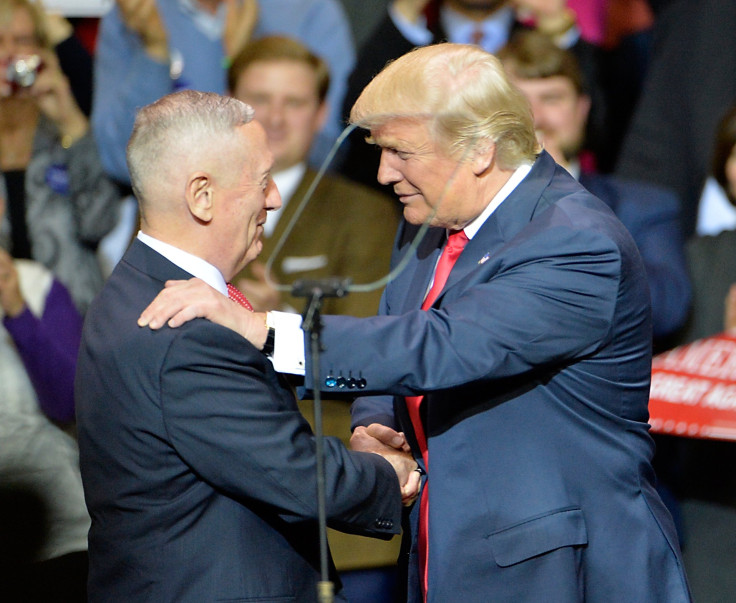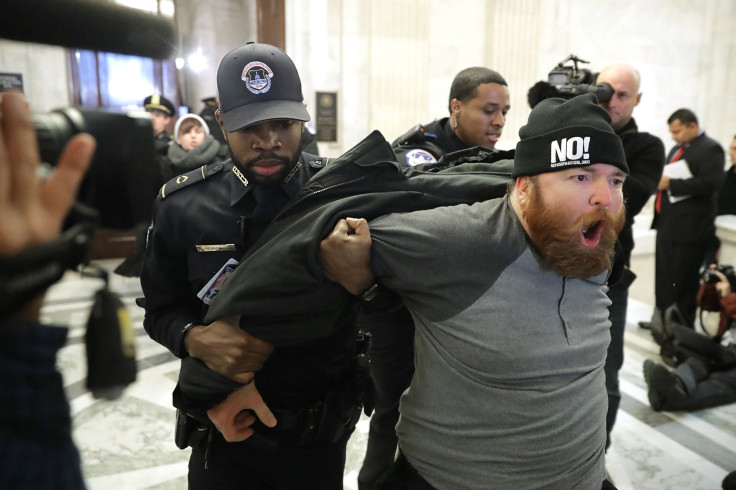How To Stop Donald Trump's Cabinet Nominations: Breaking Down The Way Senate Confirmation Hearings Work

Tuesday kicked off the first of many Senate confirmation hearings for Donald Trump’s potential future cabinet, starting with controversial Alabama Sen. Jeff Sessions. The president-elect’s pick for attorney general went before a committee amid protests and concerns about his policy stances. The tumultuous hearing was the first of many in the coming days to determine what the administration's cabinet will look like.
Over the next several days, the Senate will decide whether or not to approve Trump’s picks for top positions. The Senate committee responsible for the hearing of each nominee will depend on the jurisdiction of the potential appointment. Prior to the hearings, each person was vetted by the Internal Revenue Service, the Office of Government Ethics, the Federal Bureau of Investigation and one individual from the department they would be responsible for. The nominees answer questions related to policy during the hearings, but confirmation lies not just in their substantive answers but in their demeanor on the floor.
“The second important question is, how do they respond?” Bruce Oppenheimer, a professor of political science at Vanderbilt University and an expert on the confirmation process, told International Business Times. “Have they been well prepared for a confirmation hearing and the type of questions they will get? Their interaction with senators does have an impact.”
During the Senate hearings, specifically designated committees will vote to move the nomination to the Senate floor. Should they reject one of Trump’s picks, they can choose not to vote. Because Republicans hold a majority in the Senate, it’s unlikely that Trump’s cabinet picks will be rejected.
“There is a very strong tendency to go ahead and confirm nominations,” said Oppenheimer.

It is possible some may not be confirmed, however, due to the controversial nature of some of the picks.
“Given the narrow majority, the split in the Senate, most of these Senate committees have only one, maybe two more Republicans than they do Democrats,” said Oppenheimer. “So then you have to worry about do you lose one or two Republicans for some reason. But without losing any, they can report anyone they want.”
Among those who will have confirmation hearings are potential secretary of education Betsy DeVos, potential secretary of defense James Mattis and potential secretary of housing and urban development Ben Carson.
This year’s packed schedule has been somewhat controversial, primarily among Democrats, though it is not without precedent. Critics have voiced concerns over the fact that such a full slate of hearings might not give Senators enough time to properly evaluate all the nominees. However, there were two such days during President Barack Obama’s cabinet confirmation hearings when five hearings occurred. George W. Bush had one day with six hearings, the most of any past president.
© Copyright IBTimes 2024. All rights reserved.






















